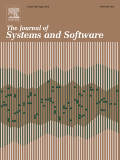ICSR 2016
JUNE 5 -7, 2016 LIMASSOL, CYPRUS
Call for Research Papers
Download as a PDF
General Information
For decades the International Conference on Software Reuse (ICSR) has been the premier event in the field of software reuse research and technology. The main goal of ICSR is to present the most recent advances and breakthroughs in the area of software reuse and to promote an intensive and continuous exchange among researchers and practitioners.
The 15th International Conference on Software Reuse (ICSR-15) will be held on June 5-7 2016, in Cyprus.
We invite submissions on new and innovative research results and industrial experience reports in the area of software reuse.
The guiding theme of ICSR-15 is: Software reuse: bridging with social-awareness
Development online social networks are gaining ground lately with software engineers participating in different fora collaborating and exchanging ideas and expertise. Software reuse needs to utilize, but also strengthen, this new form of synergies that can be built among engineers. ICSR special theme aims to bring this aspect in software reuse by raising social-awareness, strengthening the existing platforms and tools, and utilizing the vast software information that exists in development social networks.
Amongst the numerous important challenges we identified the following major topics for research focusing on reuse with social-awareness:
- • Social network interactions between developers to support software reuse
- • Utilization of online social development tools for software reuse
- • Software reuse to enhance social-awareness
- • Trust, security and semantic issues of social aspects of software reuse
Beyond those novel challenges for software reuse, we solicit submissions dealing with all aspects of software reuse, including, but not limited to the following ones:
- • Domain analysis and modelling
- • Asset search and retrieval
- • Architecture-centric reuse approaches
- • Component-based reuse
- • Service-oriented architectures
- • COTS-based development and reuse of open source assets
- • Generative development
- • Domain-specific languages
- • Software composition and modularization
- • Model-driven development
- • Reengineering for reuse
- • Software product line techniques
- • Quality assurance for software reuse, such as testing and verification
- • Reuse of non-code artifacts (process, experience, etc.)
- • Economic models of reuse
- • Benefit and risk analysis, scoping
- • Legal and managerial aspects of reuse
- • Transition to software reuse
- • Industrial experience with reuse
- • Light-weight reuse approaches
- • Agile reuse
- • Software evolution and reuse
- • Reuse for mobile and ubiquitous applications
Paper Submission
Novel and well-founded work in the wider area of software reuse is highly welcome. We look for strong research work which might have a strong theoretical or empirical foundation. Theoretical work should in particular provide innovative ideas and should be based on a sound theoretical basis. Empirical work based on case studies, empirical research and experiments is also highly welcome. Industrial submissions describing practical experience are also strongly encouraged.
Submissions must conform to Springer's Lecture Notes in Computer Science format, and are limited to 16 pages in length, in English. Short papers (up to 8 pages) are accepted as well and should be marked accordingly. You will be able to submit your paper via Easychair. Each submission will be reviewed by at least three members of the program committee. We plan to have a best paper award for this conference, details will be announced in due time.
Accepted papers will be published in Springer's highly visible LNCS series again. Please note that a full conference (i.e. not a student) registration is required for a technical paper to be published.

Moreover, the prestigious Journal of Systems and Software will dedicate a special issue on software reuse for which the authors of selected papers from the conference will be invited to submit an extended version (containing at least 30% new material). The CFP of the special issue can be found here.
Important Dates
Submission:Notification: 25 February 2016
Cam Ready: 10 March 2016
Special Issue JSS submission by: 03 October 2016 View the Special Issue CFP for more details